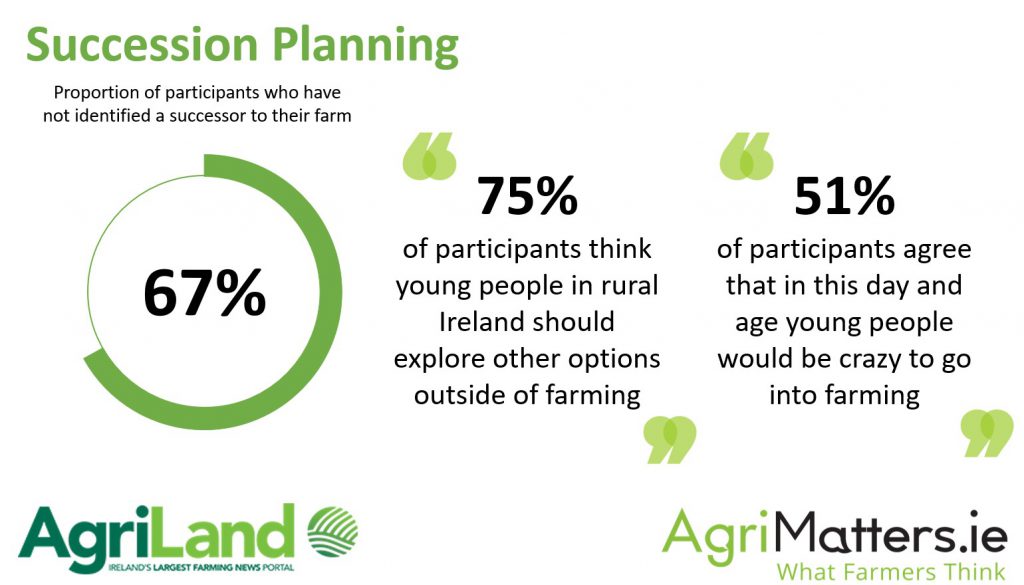In the ‘state of the nation survey’ conducted by AgriLand and Empathy Research last week, just 33% of respondents have identified a successor for their farm currently, it has been revealed.
The survey – which saw 2,921 respondents from a variety of backgrounds and locations take part – found that 59% of participants have not yet identified a successor to their farms.
The remaining 8% did not know when asked “have you identified a successor for your farm yet?”.
The unweighted survey, conducted in recent days by AgriLand readers, touched on a number of topics in a broad-ranging series of questions for modern-day farmers.
In a breakdown of respondents, it was found that 37% of full-time farmers who participated in our survey have identified a successor, compared to 29% of part-time farmers.
On farm type, interestingly it was established among those who took part that – in a breakdown of: primarily beef farmer; primarily dairy farmer; primarily sheep farmer; and any beef, dairy, sheep and tillage farmer – those who selected primarily sheep farmer are the least who have identified a successor, with 29% ticking yes.
Farmer respondents who have identified a successor ranged from 29% to 38%, depending on enterprise, with those who have not ranging from 52% to 62%.
Age-wise, older respondents naturally were more likely to have a successor identified.
24% of those aged under 34 answered ‘yes’ to having a successor – this compared to: 19% of those aged 35-39; 25% of those aged 40-44; 31% of 45-49 year-olds; 36% of 50-54; 49% of 55-59; and 65% of those aged 60+.
Who is the successor?
In terms of who was identified as successors by respondents who said ‘yes’, 74% of participants named their son as successor.
10% named their daughter; 2% named their partner or spouse; 8% named another relative; and 6% selected someone else.
Likelihood of farming
74% of the 974 farmers who have identified a successor believe that their successor will continue farming.
This is broken into 46% who feel they are “very likely”; and 28% who believe they are “somewhat likely”. By comparison, 16% are “not likely”, while 10% don’t know.
This was further separated with the question: “Do you think the person who you have identified as the successor to your farm really wants to take over your farm or do you think they are just doing it because they feel they have to?”
17% selected the choice “I think they are just doing it because they feel they have to”; while 23% are not sure or have not spoken to their chosen successors about it.


